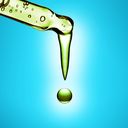Why it makes no sense for tweens to buy "anti-aging" skin care products

Young girls are buying up expensive Sephora beauty products, even if they know they don't "need" to.
Why it matters: Experts say there are no proven benefits of using "anti-aging" products at a young age, and that these products can actually introduce skin problems.
What they're saying: "With filters, people don't really seem to realize what skin looks like," says cosmetic chemist Michelle Wong.
- Wong, who debunks skin myths on social media as @labmuffinbeautyscience and was a Reddit moderator, says she sees people post photos of normal skin that might have a pore and ask, "How do I get rid of this awful texture?"
- But some skin care marketing ingrained in culture — and particularly social media — aims to solve for skin issues that don't exist.
Reality check: The idea that young people are exploring beauty products geared for adults isn't new.
Between the lines: An 11-year-old's skin is different from — and doesn't have the same needs as — the skin of 20-somethings or older.
- Younger skin has plenty of collagen and fast cell turnover (when new skin cells replace dead cells), and hasn't accumulated much damage.
- "All the Drunk Elephant products like vitamin C, the toner, the retinol — those are all unnecessary [for preteens]," says Nazanin Saedi, dermatologist and associate professor at Thomas Jefferson University.
- And more expensive skin care isn't necessarily better for your skin. Gentle, highly-researched products often available in drugstores — like CeraVe and Cetaphil — are likely a better bet for tweens, Saedi says.
Meanwhile, layering on too many skin care products might introduce issues.
- Although causes of skin irritation are hard to pinpoint, Saedi has seen that "putting on all these products, people do have more irritation, flaking, redness, more inflammation in their skin, which isn't good," she says.
- Even adding unnecessary moisturizer can be counterproductive by encouraging skin to make less of its own moisturizing components.
- "So you can actually be creating a need for a product that you didn't need in the first place," says Wong, who recommends moisturizer only to those who have skin that's tight, cracked or flaky.
The big picture: "Anti-aging" skin care should not be a concern for tweens.
- "Using a retinoid when you're 9" isn't going to make your skin plumper or less wrinkly at 30, Saedi says.
- More important than the products themselves, Wong says, parents and young people should focus on "being more conscious of these influences that are making you feel like your skin is good or bad."
Yes, but: Not all "anti-aging" ingredients are harmful for tweens' skin.
- Strong ingredients like retinoids — and also benzoyl peroxide and chemical exfoliants like salicylic acid — could have benefits for people with acne, Wong says.
- And although collagen won't work as a preventative wrinkle eraser, it could function as a moisturizer.
The bottom line: When it comes to preventing future skin damage for tweens, sunscreen is the most important, proven product.
- Beyond that, experts recommend a cleanser, and perhaps a moisturizer.
Go deeper: Natural means nothing on a cosmetic label